


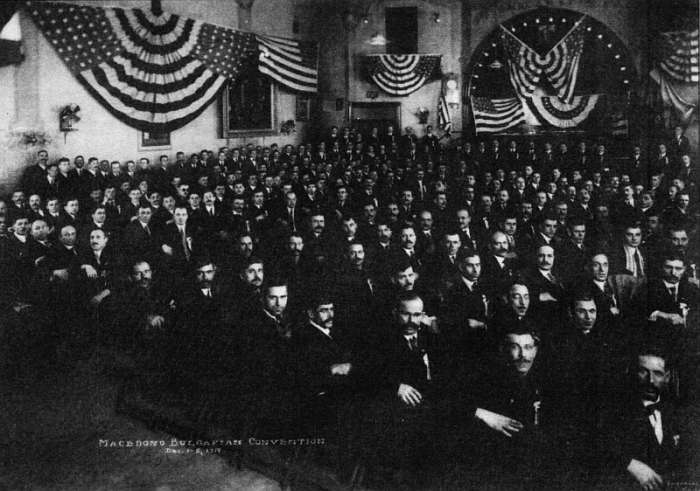
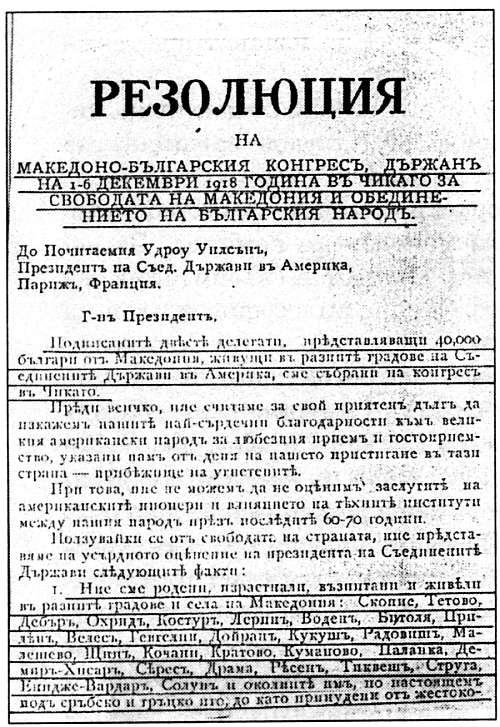
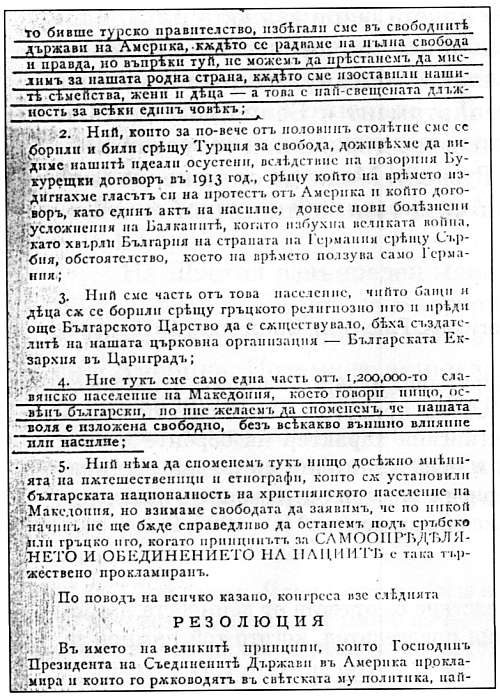
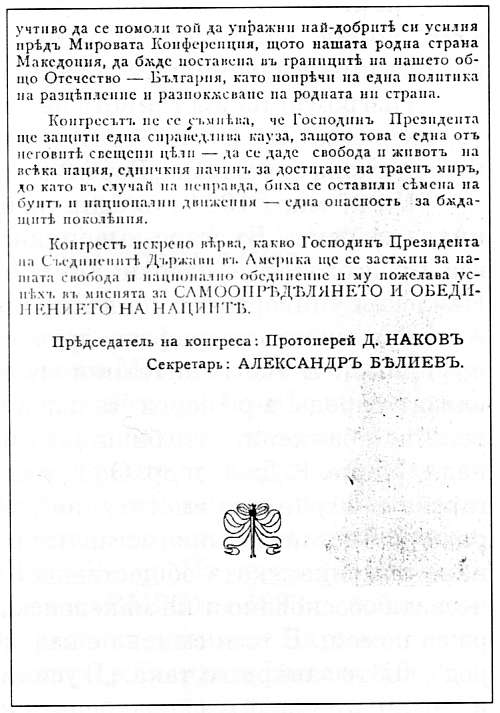
Memoir
Respectfully Submitted by the Macedono-Bulgarian Central Committee
Representing Forty Thousand Bulgarians from Macedonia in the United
States of America, to the President of the United States of America,
and to the Governments of the Allied and Neutral Powers of Europe and
Their Representatives at the Peace Conference, Paris, France.
Here is part of the text:
"A resolution by the Macedono-Bulgarian
Congress conducted on December 1-6, 1918 in Chicago for the freedom of
Macedonia and the unification of the Bulgarian people.
......
We, the undersigned 200 delegates, representing 40 000
Bulgarians from Macedonia, present the following facts:
"1. We are born, grown up and brought up in the cities and villages of Macedonia, where we used to live: Skopie, Tetovo, Debar, Ohrid, Kostur, Lerin, Voden, Bitolja, Prilep, Veles, Gevgeli, Dojran, Kukush, Radovish, Maleshevo, Shtip, Kochani, Kratovo, Kumanovo, Palanka, Demir Hisar, Serres, Drama, Resen, Tikvesh, Struga, Enidje-Vardar, Solun and others, which are currently under Greek and Serbian slavery...
3. We are part
of that population, whose fathers and children had fought against the
Greek religious yoke and had been the creators of our church organisation
the Bulgarian Exarchate much before the Bulgarian Kingdom was
created.
4. We are just a small part of the 1, 200, 000
Slav inhabitants of Macedonia, who speak no other
language but Bulgarian...
...
...we politely ask that our native land be
included in the borders of our common Fatherland, thus
preventing a policy of partition and tearing apart of our native land."
2. Stilton. The
members of the Bulgarian Mecedono-Odrinian Organization. See the
enormous Bulgarian flag.
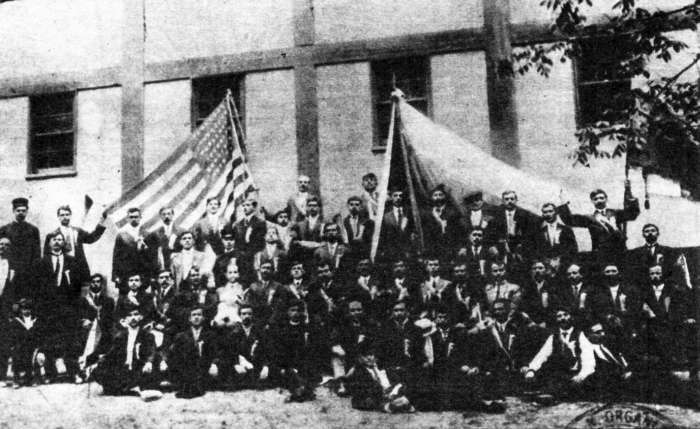
3. The celebration
of the St. St. Cyrill and Methodius day in Madison, Illinois,
1920. The Bulgarian flag is proudly raised as a symbol of the
national affiliation of the early emigration.
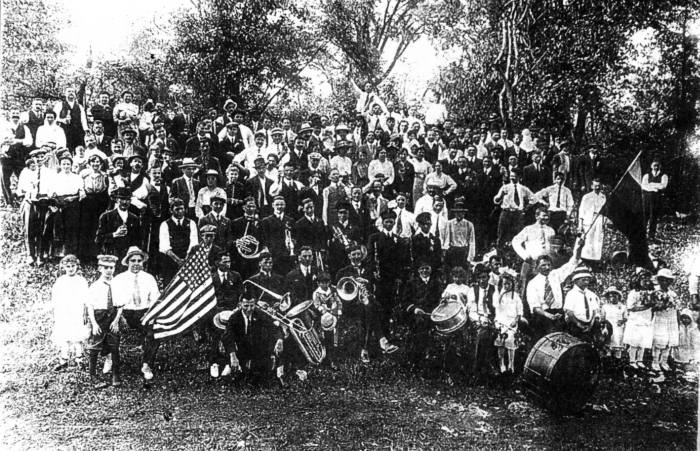
4. The laying of
the foundation stone of the Bulgarian church in Stilton, Pennsylvania
in 1909. To the right is seen the Bulgarian flag.
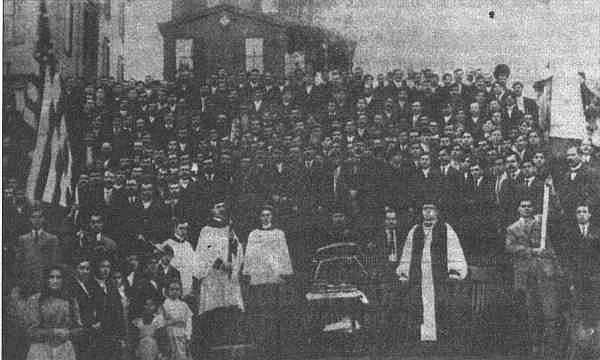
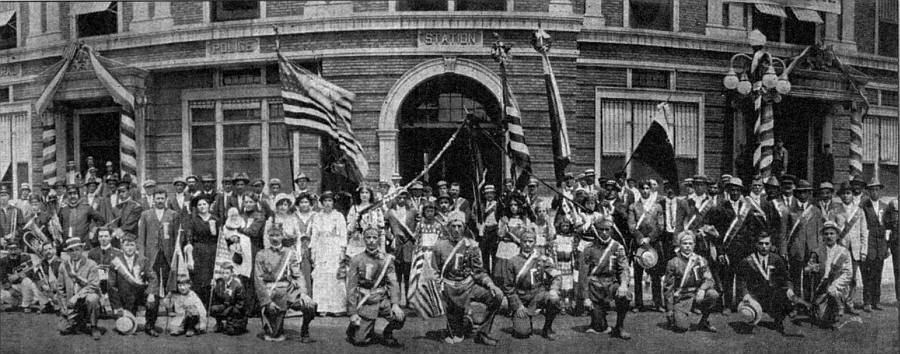
6 .
The "Liberty" newspaper was the press organ of the Macedono-Bulgarian
National Alliance..

7. Trayan Andreeff Murdzheff from the village of Giavato, Bitolja, with a parade uniform. On his chest he has a Bulgarian-flag ribbon.
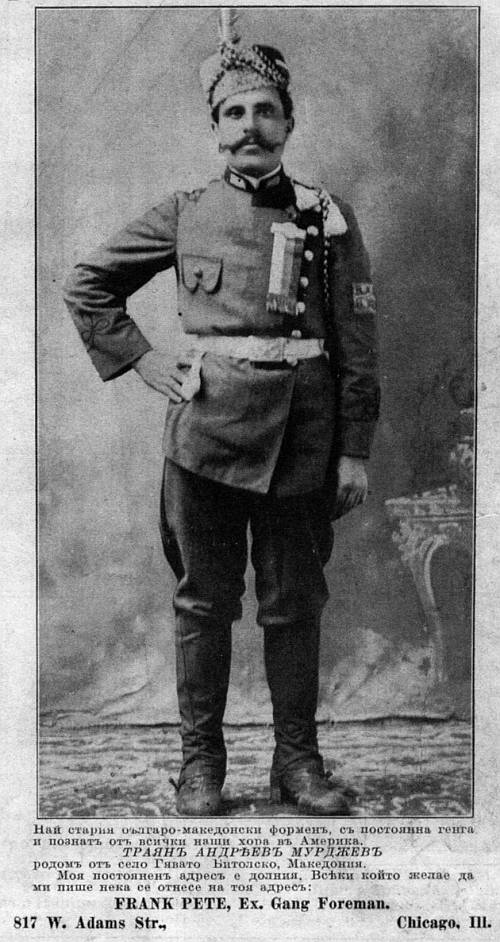
8. À Bulgarian amateur
theater group giving the play "Macedonian
Bloody Wedding". Behind them is the Bulgarian flag.
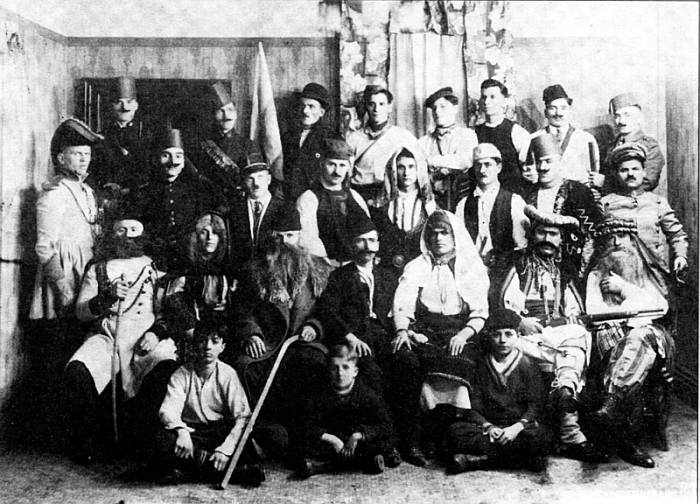
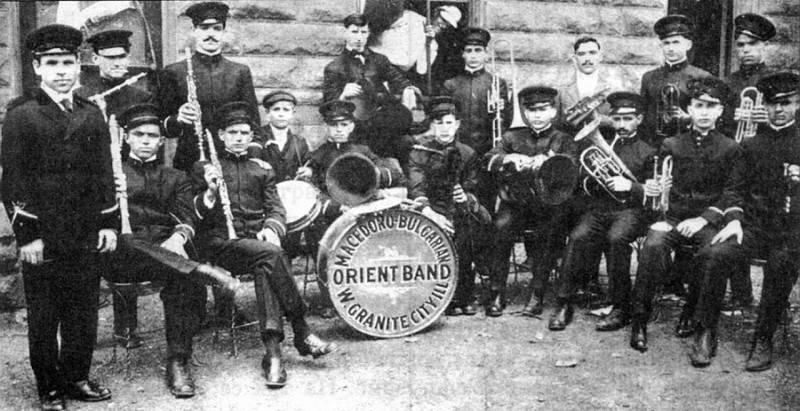
10. "Bulgarian Balkan Band" - founded in 1915 in Stilton, Pennsylvania. Most of its members were from Prilep, Macedonia.
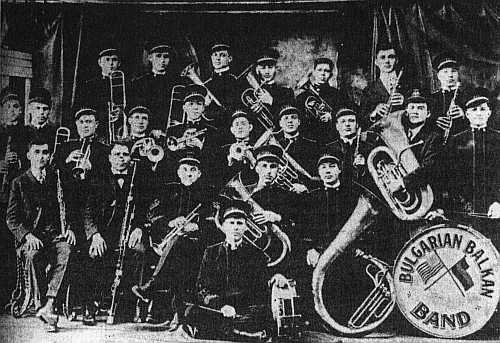
11. The "Macedonia" newspaper was
the fifth Bulgarian newspaper in the US. It was issued weekly in
Granite city from 1907 to 1910.

12. April
23, 1942: OSS
report on various American Slavic groups. In 1942 as a mean to build up pro-Allied sentiment
among America's various Eastern European immigrant communities, a "Slav
Congress" was held, with delegations arriving from the most prominent
groups. Office of Strategic Services informant "SK" attended and
reported on internal dissension behind the scenes. In the report the
population of Macedonia is reffered to as "Macedonian Bulgarians".
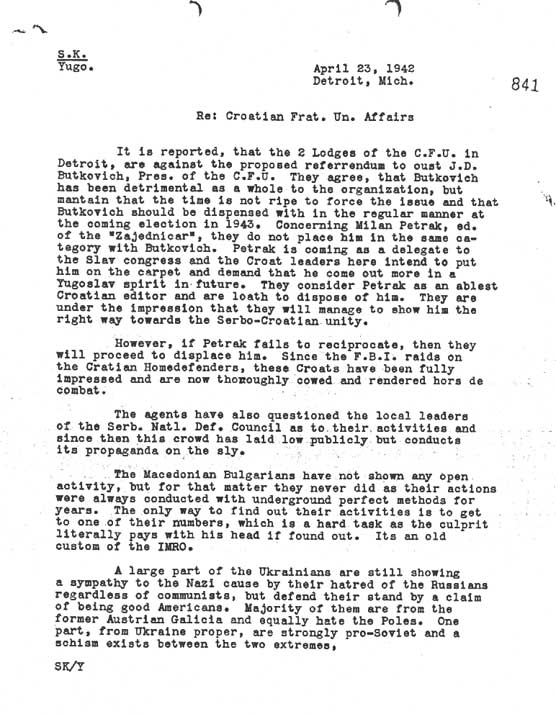
13. Here you can see examples of newspaper advertisements of the Macedonian Bulgarians in the US from the beginning of the 20th century.
14. Resident Alien's Border Crossing Identification Cards issued in 1947 by the Immigration and Naturalization Service of the U.S. Department of Justice.
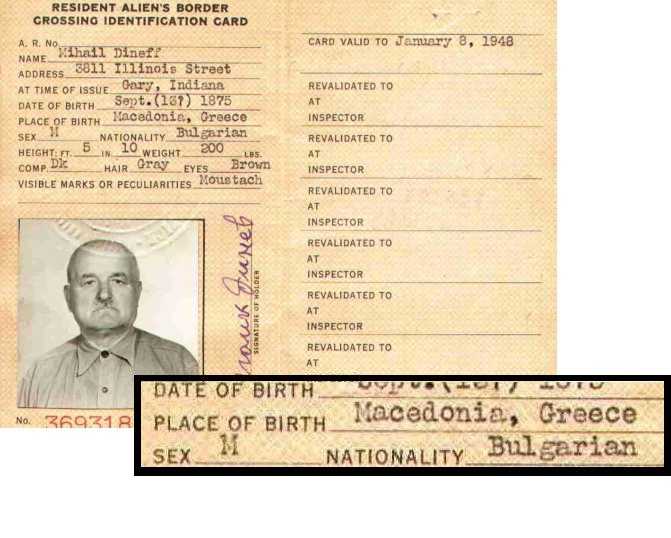
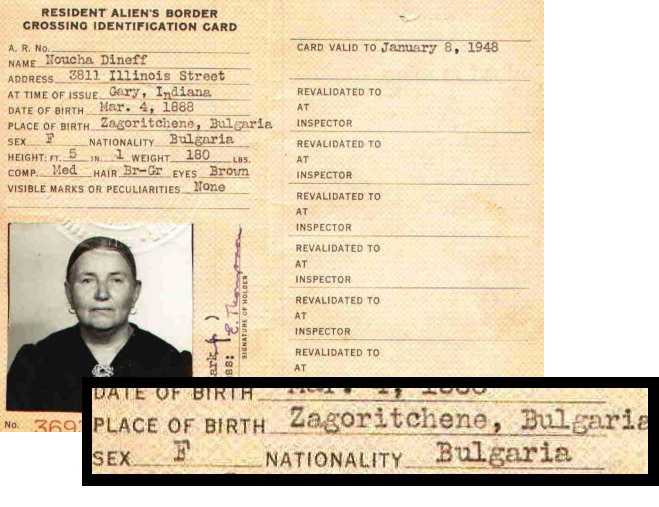
15. 1910 Census in the US - Instructions to Enumerators:
...
137. Do not write "Macedonian," but write Bulgarian, Turkish, Greek, Servian, or Roumanian, as the case may be.
...
Taken from here.
Links: